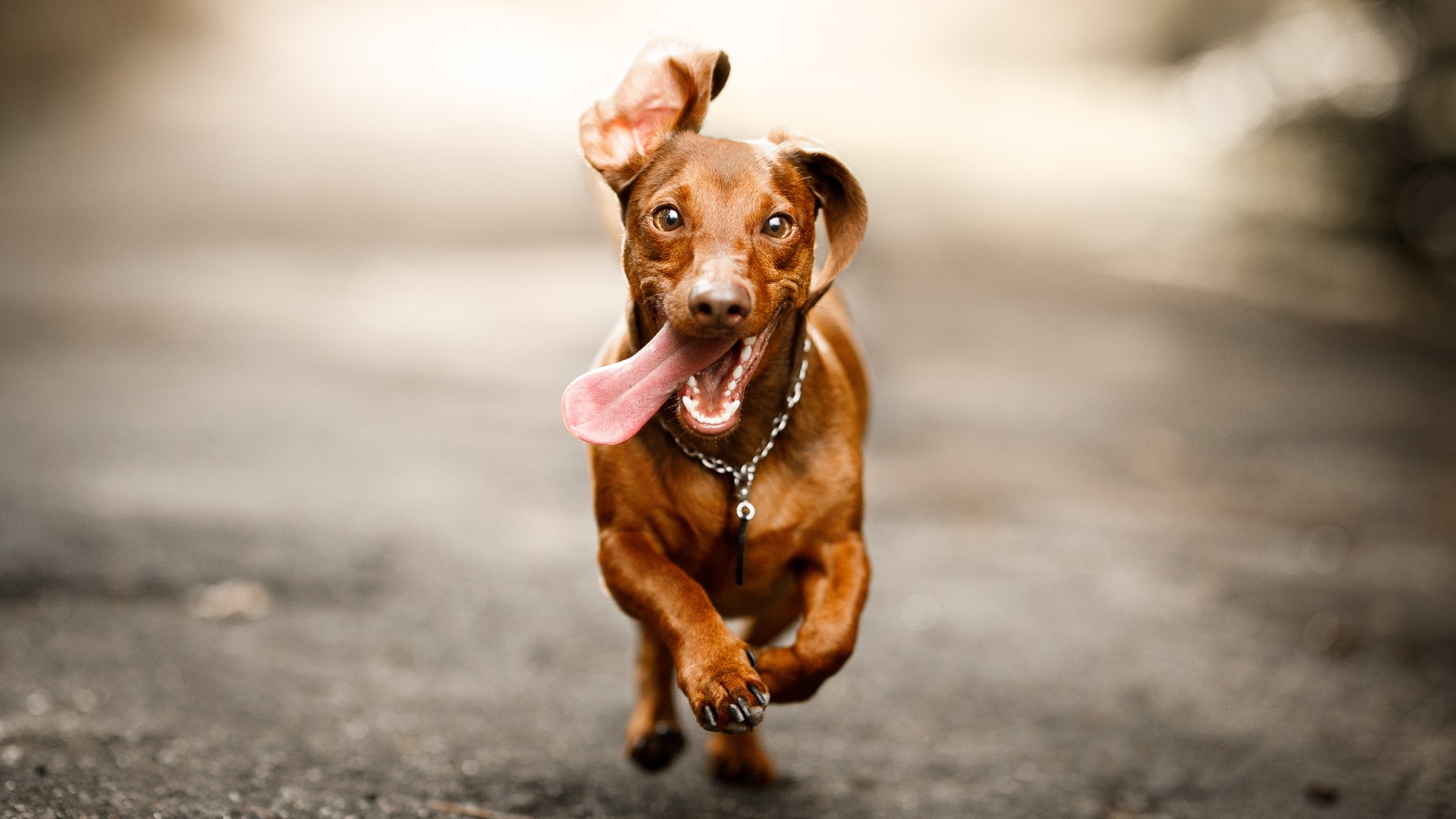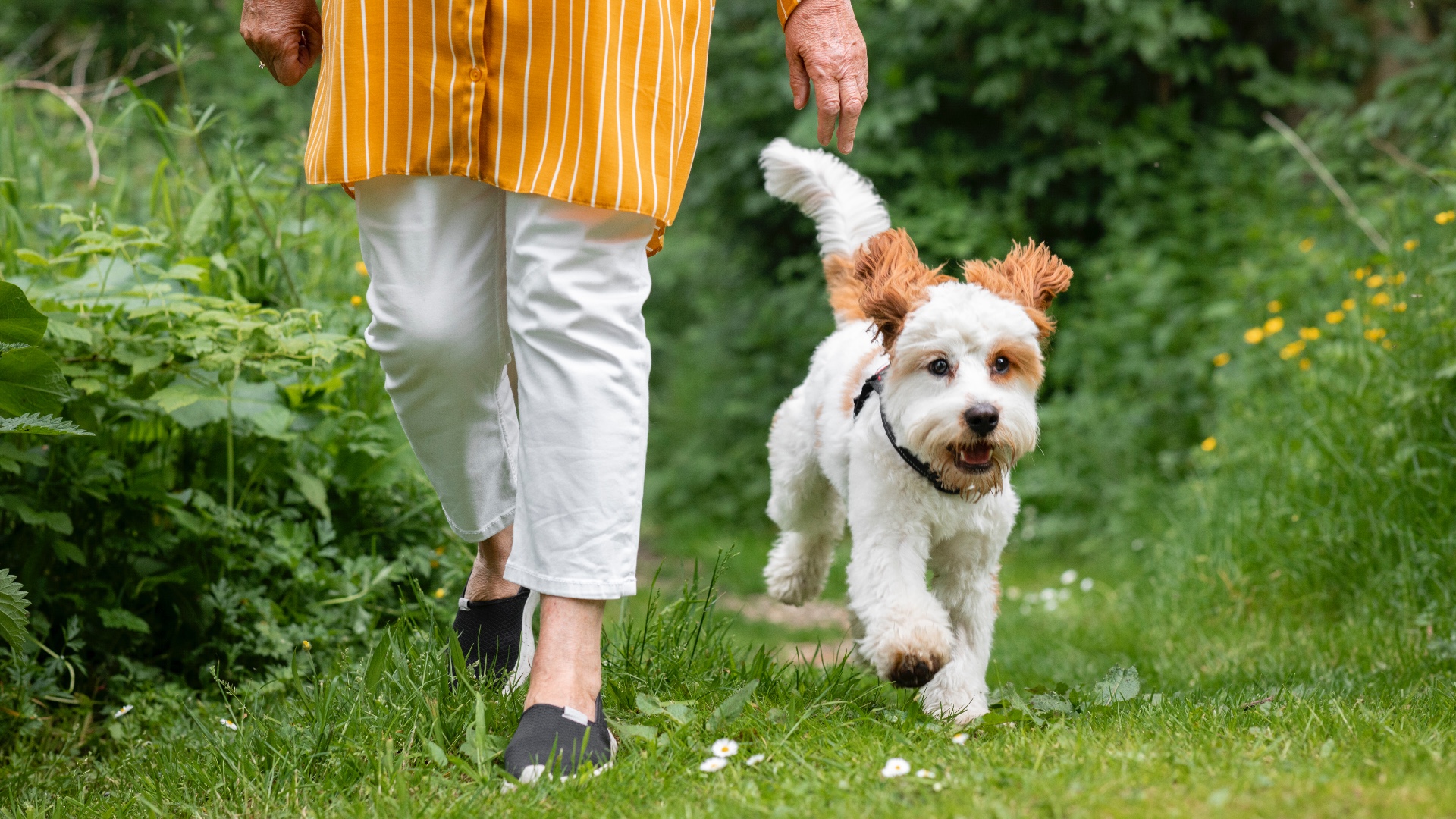
As much as I love my reactive border collie, Fenwick, I have to admit that she can really put me through my paces – especially when it comes to off-leash behavior! Over the past year and a half, I’ve been putting in heaps of work to try to resolve Fenwick’s reactivity to cars and dogs. We’ve had some amazing wins during this time – she’s gone from being completely fixated, and unable to move, whenever a dog was around to going on regular walks with new doggy pals. However, every now and then she likes to throw me a curve ball that brings me back down to earth.
At the start of the year I felt that Fenwick was ready to try agility training, and this was a game-changer for her off-leash antics. My long-standing dog trainer, Lara Sorisi, gave me a great recommendation for an instructor, and I knew that it would be a good outlet for Fenwick’s naturally high drive and energy. Lara had been pushing for me to try agility for a while, as she thought it would be a great way to fulfill Fenwick’s mental and physical needs.
Lara says, “Fenwick had a really tricky start due to being very poorly as a puppy. This meant that she missed a lot of the key socialization and development that most young dogs would have experienced. This meant that Louise has had to fasttrack and intensify this training while teaching Fenwick how to manage and cope with her arousal levels, which she naturally has anyway from having well-established working lines in her breeding.”
How my dog embarrassed me with her terrible off-leash behavior

I was really excited to try agility training and I had grand visions of Fenwick soaring over the jumps and wiggling excitedly through the weave poles. However, the reality of my first session was markedly different to the fantasy in my head. As soon as I let Fenwick off the lead she bolted away from me and started sniffing all the equipment. When I tried to call her back she completely ignored me, even running away when I went over to get her. Considering how experienced the agility instructor was, I was mortified at her behavior. She was so unreliable that we had to put her on a long line for the entire session just so that we could stop her from running away.
While I wouldn’t have previously said that Fenwick was the most reliable dog in the world, I was surprised and embarrassed by how little she listened to me. I asked Lara why Fenwick had struggled so much in this situation.
Lara says, “Fenwick hadn’t been proofed enough to be able to handle that particular scenario. Proofing is all about going to different environments at different points of the day to get the dog used to performing a particular behavior no matter what other distractions there might be. When you went to your first agility session, there were so many new things for Fenwick to experience – it was a new indoor space, there was fake grass on the floor with lots of scents from other new dogs and she had a male instructor that she hadn’t been around before. Even the fact that she was in the car for an hour before you got there would have had an impact.”
“It’s also worth mentioning that because you were also new to agility, the instructor was teaching you how to teach Fenwick – you wouldn’t have been confident in what you were doing and she would have picked up on that.”
How to teach your dog to stay near you off-leash

As soon as I saw how easily Fenwick was able to ignore me in a strange place, I knew that I had a lot of work to do. I asked Lara for her tips on training Fenwick to stay close to me, no matter how interesting an environment she’s in.
Lara says, “If there’s any chance of your dog ignoring their recall cue and not coming back to you, then you must put them onto a long line for their own safety. However, if you’re in a controlled environment, such as a private dog walking field or your backyard, then there are a few techniques you can employ while they’re off-lead. My secret weapon for dogs with a spotty recall is to tell owners not to feed their dogs out of a bowl. Instead, I tell them to use their meals as treats instead. For dogs that are particularly stubborn or independent, I recommend that owners should hand feed every meal.
In terms of what environment you train your dog in, I would try to avoid super exciting places such as woodland or around other animals. You want to start somewhere really boring so that the dog gets used to thinking that you’re the most exciting thing around. As your dog progresses with its training, start to layer and proof the behavior by taking it to more exciting and stimulating environments (always using a long line as a back-up if you’re not confident your dog will listen).”
With Lara’s advice in mind, I booked out a nearby private dog walking field and brought out the big guns – freshly cooked salmon. I spent the entire 45 minute session walking around the field with Fenwick, hand-feeding her salmon while she stayed close to me. This was super successful and was a great starting point to build on.
I repeated the winning dog walking field + salmon formula multiple times over the subsequent weeks, but this wasn’t the only tool in my arsenal. The more we went to agility training, the more Fenwick realized just how much she loved it. In fact, after a few months, Fenwick’s drive means that we’ve gone almost totally off-lead due to how much more reliable she now is.
Fenwick’s engagement with me is a million times better than our first session and I’m so amazed at how much change I’ve seen in just under three months. Lara has previously told me that, “The more drive that gets built up, the easier she’ll be to handle,” which absolutely rings true. I can’t believe how much she’s learned in just a few short months – and I can’t wait to see where she’ll be in a few more.
Looking for more great walking tips? Here's a pro tip on enjoying a more stress free walk with your dog.







